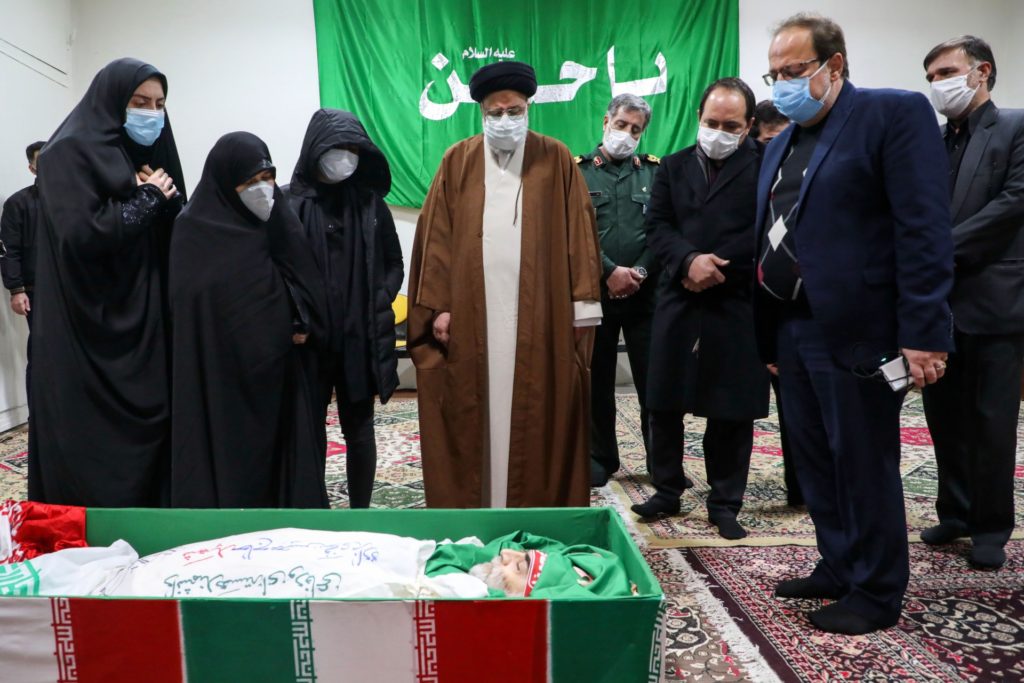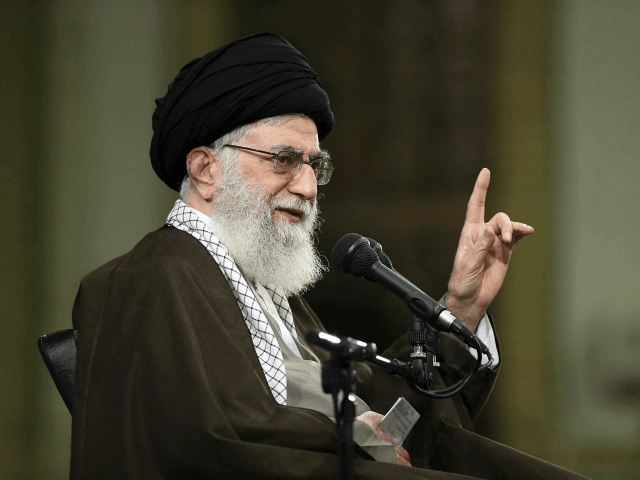Iran has successfully identified the perpetrator’s behind Friday’s assassination of Iran’s top nuclear scientist Mohsen Fakhrizadeh, an Iranian government spokesperson claimed Wednesday.
Iran’s Tasnim News Agency cited Ali Rabiei as saying the Islamic Republic’s Intelligence Ministry had “identified individuals in connection with the assassination attack.”
He added the regime had “managed to take control of the situation in the region.”
Rabiei also said retaliation would be devised as soon as definite results to the investigation are obtained.
“When the investigation reaches its final stages, a formal comment will be provided by the relevant parties. As mentioned by the supreme leader [Ali Khamenei], the most important thing is that our information wasn’t compromised,” Rabiei was quoted as saying to Iran’s state TV. “We will continue to improve and increase our technological capabilities.”
The world should thank Israel for the assassination of Iran’s nuclear mastermind Mohsen Fakhrizadeh, a senior Israeli official said. https://t.co/rXiICEA5eK
— Breitbart News (@BreitbartNews) November 30, 2020
According to a report published Monday, Iranian intelligence agents were distributing photos of four suspects at hotels across the country.
A separate report by the semi-official Fars news site quoted the Intelligence Ministry as saying the identity of Fakhrizadeh’s killers included a brigadier general in Iran’s Islamic Revolutionary Guard Corps, as well as a key figure in the country’s military research-and-development program. A senior Iranian official was quoted as saying that an Iranian opposition group cooperated with Israel in the assassination.
Iranian news sites also reported that the assassination was carried out using an Israeli-made munition controlled by satellite.
Speaking at Fakhrizadeh’s funeral, the secretary of the country’s Supreme National Security Council Ali Shamkhani said Israeli remote-control “electronic devices” killed the scientist.
After the funeral, the regime’s English-language Press TV reported a weapon uncovered at the scene of the attack outside of Tehran bore “the logo and specifications of the Israeli military industry.”
The Al Alam news site, another state-run outlet, cited an anonymous source as saying there was proof Israel was behind the killing.

Iran’s Judiciary Chief Ayatollah Ebrahim Raisi (C) pays respects to the body of slain scientist Mohsen Fakhrizadeh among his family, in the capital Tehran on November 28, 2020. Mohsen Fakhrizadeh, dubbed by Israel as the “father” of Iran’s nuclear programme, died after being seriously wounded when assailants targeted his car and engaged in a gunfight with his bodyguards outside Tehran, according to Iran’s defence ministry. (MIZAN NEWS AGENCY/AFP via Getty Images)
Shamkhani also told state TV Iran’s enemies had attempted “a number of failed operations” against Fakhrizadeh in the past.
“This time, the enemy applied a completely new, professional and sophisticated method,” he said. “No individual was present at the site.”
The semi-officials Fars news site on Sunday reported the attack was carried out remotely using a machine gun that was affixed to a car.
According to the report, the car exploded once it had finished raining bullets on Fakhrizadeh from a distance of roughly 150 meters (500 feet).
Other outlets published entirely different descriptions of the events, saying dozens of Israeli operatives were on the ground and an explosion took place before a fire fight, which forced Fakhrizadeh’s security detail to stop the convoy.
According to an unnamed Western intelligence source who spoke to Israel’s Channel 12, Fakhrizadeh’s killing was the “pinnacle” of Israel’s long-term plans to curtail Iran’s nuclear weapons program.
Fakhrizadeh was described as the “father of the Iranian bomb” in a famous 2018 presentation by Israeli Prime Minister Benjamin about a raid on a Tehran warehouse in which Mossad operatives spirited half a ton of secret documents on Iran’s nuclear program out the country. During that presentation, Netanyahu said: “Remember that name, Fakhrizadeh.”
Bernie Sanders: “The assassination of Mohsen Fakhrizadeh was reckless, provocative, and illegal.” https://t.co/zsPoZ6TxMx
— Breitbart News (@BreitbartNews) November 29, 2020
On Sunday, Energy Minister Yuval Steinitz told the Kan public broadcaster that Fakhrizadeh’s death served the whole world.
“The assassination in Iran, whoever did it, it serves not only Israel, but the whole region and the world,” Steinitz said.
Iran has vowed to retaliate for the attack, which it blames on Israel, but according to Amos Yadlin, the former head of Israeli military intelligence and the current head of the Institute for National Security Studies think tank, is unlikely to do anything in the near term.
The Fakhrizadeh hit may have been “timed to narrow the risk of a significant Iranian offensive response in the near term, given the fears in Tehran of a severe offensive overreaction on the part of the Trump administration, and an Iranian desire to facilitate the resumption of contact with the Biden administration,” wrote Yadlin and Assaf Orion of Tel Aviv University’s Institute for National Security Studies.

COMMENTS
Please let us know if you're having issues with commenting.